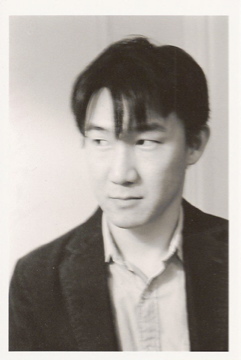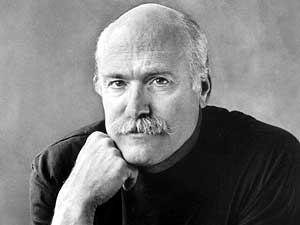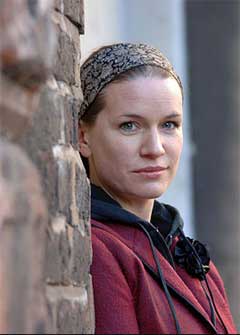1. No matter what happens in the present or the future, I will not remove a name or a reference from any past blog post. If there are significant changes to past content, I will be forthright about why the content has been adjusted or removed and offer a public explanation.
2. Even when I have mixed or negative feelings towards a blogger, if I have found a link from that blogger’s site, I will properly credit them.
3. Critical comments that take to task the posts here are welcome. But if you regularly troll on these pages and wish to pollute meaningful discourse, you will be banned from commenting. I remain as benevolent a dictator as I can. A number of people who have been particularly hostile have still been permitted to comment and have not been banned. Since 2004, I have banned only four people from commenting and viewing this site. These have been truly extraordinary cases. People who visit this site around fifteen times a day and get off on leaving bile (so the logs say). I have banned these people more out of concern for their emotional health than for any particular thing they have to say about me. (I also reserve the right to close a thread, if I feel that it has gone on far enough.)
4. I will not disemvowel any comments. These are the actions of a moderator too terrified to think outside her hermetic bubble. Commenters have been especially helpful in pointing out corrections, changing my mind, and otherwise helping me to articulate better. Even when I violently disagree with a comment, I generally try to find something within it. Therefore, it behooves me to respect their right to express themselves within the parameters of this statement.
5. If I have reported a factual error, please email me and I will correct it. If you wish to change my mind by informing me of certain facts, I remain open to your thoughts. I have been known to update specific posts here when such information has been presented to me.
6. I will not publicly post your private email. I respect your right to privacy. I believe that, as a blogger, there must be a private conduit as well as a public conduit.
7. If I am interviewing you, and you tell me something that is “off the record,” as far as I’m concerned, it’s off the record. (This policy, incidentally, has resulted in a number of great stories delivered to my ears. Too bad that I can’t tell you about them.)
8. If you wish to discuss something with me or clear up something on the phone, I will do this. This has happened a few times and I have listened to the party relay his side of the story.
9. These rules are open to amendment. And if I decide to amend these rules, I will certainly do so. But if I violate any of these rules, you have every right to tear me a new asshole. Particularly if I’m silent for days about it.

 Correspondent: If one looks at more lower brow choices, like Stephen King’s The Stand or The Andromeda Strain, or any number of superplague television series, like The Survivors and things like that, one tends to find a narrative that begins with the decimation of humanity. Yours is not that particular book. Again, going back to this question of inversions, I’m wondering if you made a particular choice. You had to have known about The Stand.
Correspondent: If one looks at more lower brow choices, like Stephen King’s The Stand or The Andromeda Strain, or any number of superplague television series, like The Survivors and things like that, one tends to find a narrative that begins with the decimation of humanity. Yours is not that particular book. Again, going back to this question of inversions, I’m wondering if you made a particular choice. You had to have known about The Stand.


 Park: It’s such a pleasure to talk to someone who’s also named Ed.
Park: It’s such a pleasure to talk to someone who’s also named Ed.

 Correspondent: I wanted to ask you about “Dictation,” the title story. This was very interesting to me for a number of reasons. Because here you have two writers, Henry James and Joseph Conrad, two secretaries of Henry James and Joseph Conrad, and then on top of that, you have a number of repetitions throughout the story, as if to echo or beckon the typewriter. Like in the very beginning, when you have Henry James describing Almayer’s Folly, you kept saying, “He saw. He saw.” And there’s a number of interesting things you are doing in the syntax of the story that almost echoes the typewriter. So I wanted to ask how this particular stylistic device came about. I know you spend a lot of time on your sentences. So you had to have been at least somewhat aware of this.
Correspondent: I wanted to ask you about “Dictation,” the title story. This was very interesting to me for a number of reasons. Because here you have two writers, Henry James and Joseph Conrad, two secretaries of Henry James and Joseph Conrad, and then on top of that, you have a number of repetitions throughout the story, as if to echo or beckon the typewriter. Like in the very beginning, when you have Henry James describing Almayer’s Folly, you kept saying, “He saw. He saw.” And there’s a number of interesting things you are doing in the syntax of the story that almost echoes the typewriter. So I wanted to ask how this particular stylistic device came about. I know you spend a lot of time on your sentences. So you had to have been at least somewhat aware of this.
 Correspondent: In “Lay Like Broccoli,” you write, “Being a vegetarian in New York is not unlike being gay.” But I must ask you. Why care so much about how you are perceived? Because that’s essentially what this is all about.
Correspondent: In “Lay Like Broccoli,” you write, “Being a vegetarian in New York is not unlike being gay.” But I must ask you. Why care so much about how you are perceived? Because that’s essentially what this is all about.
 Correspondent: This idea of first-person narration that is somewhat removed — maybe this is more of a classical sense of the short story, in the sense that today, contemporary short stories are, as you point out, more of a gushing therapy session. Maybe that’s what we’re talking about.
Correspondent: This idea of first-person narration that is somewhat removed — maybe this is more of a classical sense of the short story, in the sense that today, contemporary short stories are, as you point out, more of a gushing therapy session. Maybe that’s what we’re talking about.
 Correspondent: I’m wondering if certain artists may have changed their names because the comic book industry was considered a great calumny for many of these various artists and writers. Did you face a problem along those lines in tracking people down?
Correspondent: I’m wondering if certain artists may have changed their names because the comic book industry was considered a great calumny for many of these various artists and writers. Did you face a problem along those lines in tracking people down?

 Hall: I think familiar territory is always of comfort to a writer. I find the North of England, where I’m from, fascinating. It’s a very dramatic landscape. It’s kind of a Wordsworth country. So you’ve got the Romantic sense on one hand. And then you’ve got the strange past battling with the future. I suppose Hardy did this to an extent as well. You pick a territory. And even if it’s rural, you have human beings working within that arena. So human drama is going to arise out of those interactions. And I’ve always felt, even though the settings are sometimes quite remote and underpopulated in my fiction, there’s enough going on. You can explore ideas of civilization, breakdown of civilization, human emotional dramas. All the rest of that. But I think what’s interesting with Daughters of the North is — even though we’re casting ahead maybe thirty, forty years from now — and I think British science fiction and speculative fiction does this a lot — there’s this idea of play. When catastrophe happens, everything is knocked back to the past. And so here is what you’re left with. Day of the Triffids. This strange science fiction going on. But at the same time, everybody’s going down to the pub like they always have.
Hall: I think familiar territory is always of comfort to a writer. I find the North of England, where I’m from, fascinating. It’s a very dramatic landscape. It’s kind of a Wordsworth country. So you’ve got the Romantic sense on one hand. And then you’ve got the strange past battling with the future. I suppose Hardy did this to an extent as well. You pick a territory. And even if it’s rural, you have human beings working within that arena. So human drama is going to arise out of those interactions. And I’ve always felt, even though the settings are sometimes quite remote and underpopulated in my fiction, there’s enough going on. You can explore ideas of civilization, breakdown of civilization, human emotional dramas. All the rest of that. But I think what’s interesting with Daughters of the North is — even though we’re casting ahead maybe thirty, forty years from now — and I think British science fiction and speculative fiction does this a lot — there’s this idea of play. When catastrophe happens, everything is knocked back to the past. And so here is what you’re left with. Day of the Triffids. This strange science fiction going on. But at the same time, everybody’s going down to the pub like they always have. 
 Correspondent: I actually want to bring up
Correspondent: I actually want to bring up